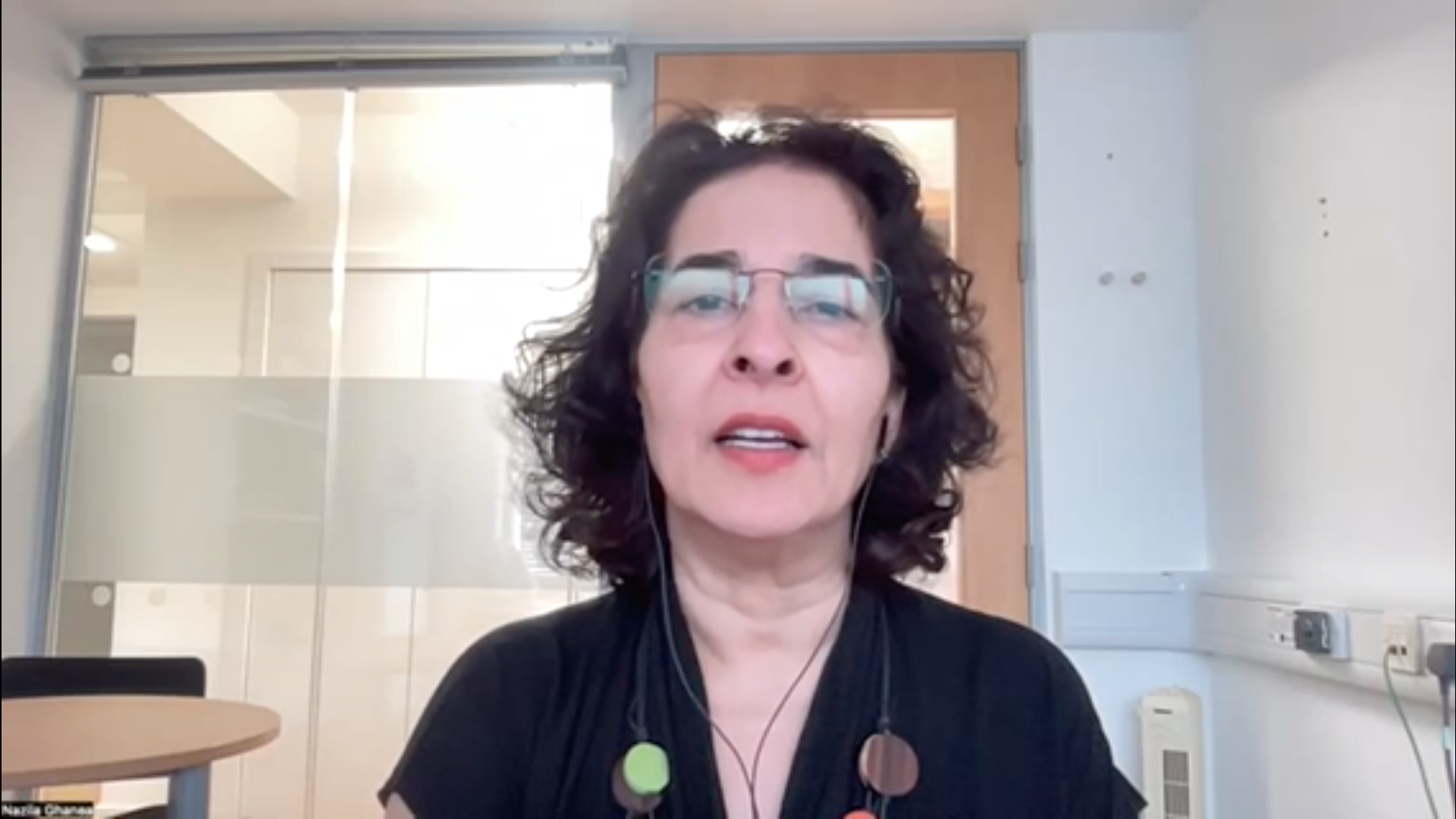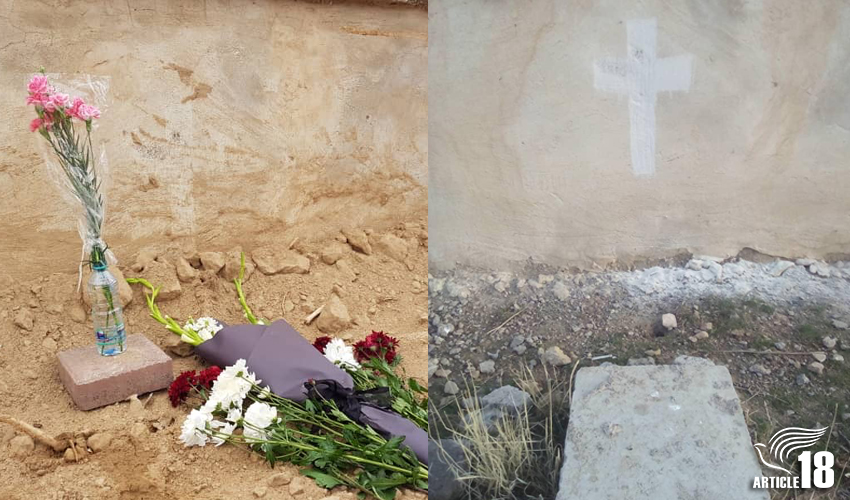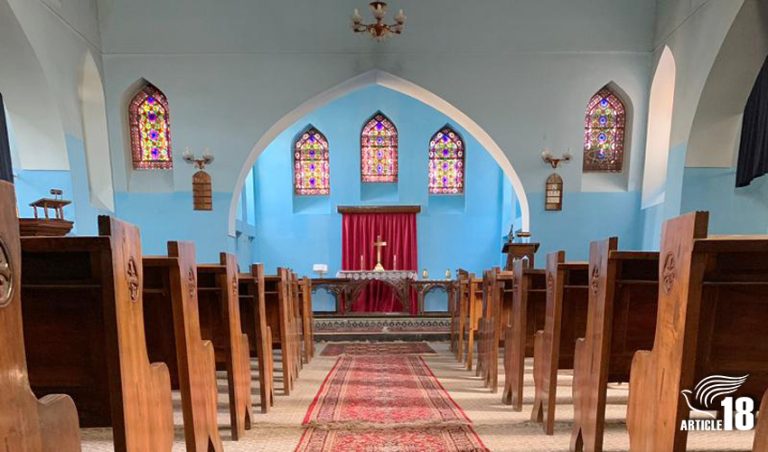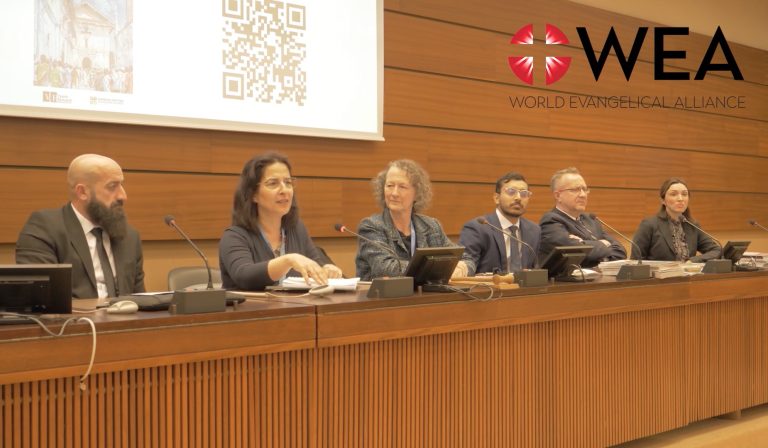
Dr Ghanea spoke at an event co-hosted by Article18 at the UN in Geneva in January.
Providing detainees with access to their holy books and religious instruction should be considered among the “minimum standards” that States must respect in order not to violate their rights, according to the UN’s Special Rapporteur (SR) on Freedom of Religion or Belief (FoRB).
“Places of deprivation of liberty must allow individuals to participate in spiritual and religious activities, to receive education, including religious instruction, to keep religious books [and] to receive visits from spiritual or religious representatives,” says Nazila Ghanea in her latest report, which was presented to the UN Human Rights Council in Geneva earlier this month.
The report, which focuses on the “nexus” between the rights to FoRB and to protection from torture and cruel, inhuman, or degrading treatment or punishment, adds that prisoners must “equally not to be forced to take part in religious practices nor receive visits from religious representatives not aligned with their beliefs”.
The SR references a case at the European Court of Human Rights, which found that “a prisoner’s inability to participate in religious services and being denied visits from a priest amounted to a violation of [FoRB]”.
In her recommendations, she calls on States to ensure that detainees can “satisfy the needs of their religious and spiritual life, in particular by attending the services or meetings provided or by conducting their own services, and have possession of the necessary books or items of religious observance and instruction”.
She adds that, “where a detention facility contains sufficient numbers of persons of a given religion … qualified representatives of that religion [should] be allowed to hold regular services and to pay pastoral visits in private to detainees at their request.
“Everyone should have the right to receive visits from a qualified representative of the religion of their choice, as well as the right not to participate in religious services and freely to decline religious education, counselling or indoctrination.”
Christian prisoners of conscience in Iran are routinely denied access to the Bible, as former prisoner Amin Afshar-Naderi testified at the UN in January.
“While in prison, I requested a Bible, explaining that I am a Christian and I had the right to access it,” he explained, but “while the Quran was readily available to all prisoners, my repeated request for a Bible was denied for a long time, until eventually an intelligence officer mockingly told me: ‘You’re foolish to make such a demand! We brought you here because of the Bible, and now you want us to give you one?’”
Meanwhile, Christian converts are often sent for religious “re-education” sessions with Islamic clerics.
Nima Rezaei testified in his Witness Statement that he and a dozen other Christians were ordered by the Ministry of Intelligence to attend a meeting with an Islamic theologian, who “spoke to us for about two hours … [and] when he finished explaining things about Islam, he said: ‘If you have any questions, I am at your service.’ He thought that our problem was that we didn’t know enough about Islam, and that’s why we had become Christians, and he wanted to convince us to return to Islam.”
Coercion the ‘key link’
Such coercion is the “key link” between the rights to FoRB and protection from torture and ill-treatment, says Dr Ghanea’s report.
“Not all forms of coercion reach the threshold of torture or ill-treatment, but all forms of torture inflicted on persons on the grounds of their religion or belief constitute coercion,” she notes. “In other words, when torture or ill-treatment is committed against someone because of their religion or belief, both rights are violated.”
Coercion can be manifested “physically or psychologically”, but as it is “easier to demonstrate evidence of physical coercion than psychological coercion … the latter has oftentimes been overlooked”.
Christian prisoners of conscience in Iran experience psychological torture more frequently than physical torture – though both have been reported – and Dr Ghanea says a consideration of the impact of both is necessary to “recognize the severity of the pain inflicted”.
And coercion not only includes pressure to “recant [one’s] religion or to convert” but also policies or practices that have the same intention or effect, such as “restricting access to education, medical care [or] employment”, she says.
Dr Ghanea’s report references a ruling of the African Commission on Human and Peoples’ Rights, which found violations of both the rights to FoRB and prohibition of torture in a case where non-Muslims were “coerced to change their beliefs through denial of work, food aid and education … considerably restrict[ing] their ability to practice freely the religion to which they subscribe”.
Article18 has reported on numerous occasions how Christians have been denied access to medical care in prison, such as in the recent case of Amir-Ali Minaei, who was beaten after asking to be sent for treatment, as well as to employment and education following imprisonment.
Burial rights

Rev Hossein Soodmand was buried in a place called “accursed”, without his family’s knowledge, and his grave was later demolished.
One “insidious” form of coercion “often targeted at members of religious minorities”, Dr Ghanea’s report says, is “disrespect for burial rituals and destroying cemeteries”.
“While freedom of religion or belief protects both rituals and places of rest for the dead, it does not fully capture the mental distress that individuals face when these are violated,” she says, adding that “a broader understanding of the connection between freedom of religion and the prohibition of torture and ill-treatment can provide a more holistic response to such violations”.
The threshold of ill-treatment may have been reached, she says, when family members “did not receive the bodies of loved ones promptly in order to be able to organize funerals in line with religious rites”, family members were “prevented from carrying out funerals in line with their beliefs”, or when there had been “no advance warning of executions” and bodies were not returned to bereaved family members.
She references members of the Baha’i faith in Iran being “prevented from burying their dead in available cemetery land and instead being forced to bury their dead on top of a mass grave site”.
Iranian Christians have also suffered from similar ill-treatment, as in the case of Rev Hossein Soodmand, who after his execution for “apostasy” was buried in an “accursed place”, without his family’s knowledge, and whose grave was later demolished.
Similar ill-treatment was also seen in the case of Mahvash Mahmoudian, wife of Esmail Maghrebinezhad, who testified in his Witness Statement that although the Anglican bishop of Iran had requested that she be buried in the local Christian cemetery, “on the day of the funeral, three agents from the Ministry of Intelligence were present as my wife’s body was washed in the Islamic way and placed in a shroud filled with Quranic verses. They prayed over her body, and after an Islamic ceremony was held by the caretakers of the Shiraz cemetery and the three agents, she was buried in the Muslim cemetery.”
‘Far more needs to be done’
The Special Rapporteur calls it “highly surprising” that “so few” legal cases related to the rights of FoRB and prohibition of ill-treatment have been “entertained by international bodies, given the number of violations reported by civil society organizations and the number of allegation letters received under [her] mandate”.
“This discrepancy demonstrates the lack of information available to persons deprived of liberty concerning their rights, and that religion or belief is not taken seriously by such institutions,” she says, adding: “Far more needs to be done to address such violations and develop effective preventive measures to end impunity.”
The “ulimate goal” of Dr Ghanea’s report, she says, is to “honour the victims of such violations by recommending a framework that will minimize the chances of repeated violations taking place again”.
A “broader understanding” of the connection between the two rights “can provide a more holistic response to such violations”, she concludes.



0 Comments